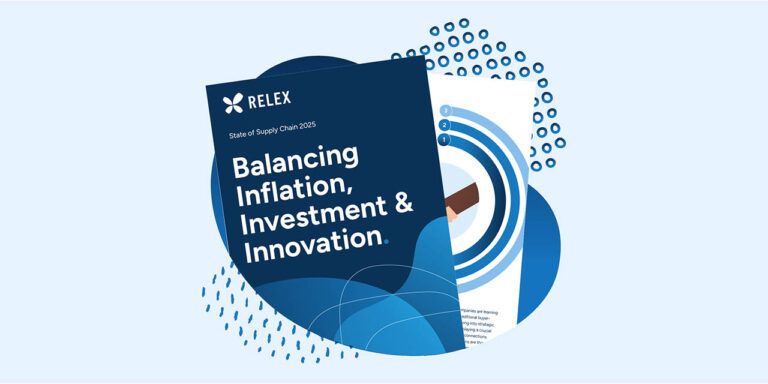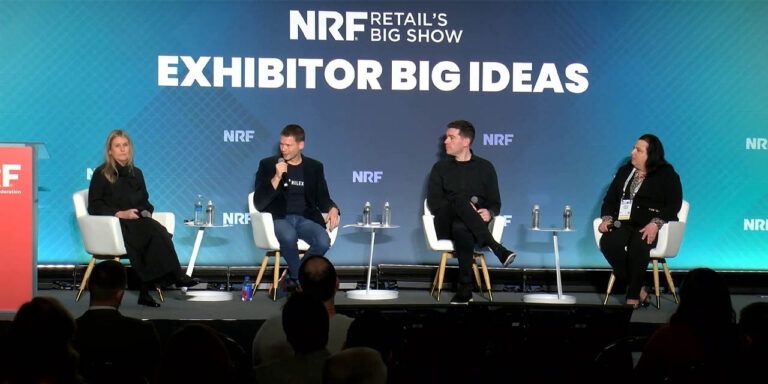2022 year in review
Dec 19, 2022 • 3 min
We’ve had a series of challenging years, and 2022 was no different. While the pandemic began releasing its grip somewhat, Russia’s invasion of Ukraine flung us into a wartime economy, bringing steeply rising energy costs, inflation, and materials scarcity, unlike anything we’ve seen in decades.
These challenges have become more acute within the retail and consumer goods industries, as shown by the rapidly shifting consumer behavior we’ve seen in many markets. Retailers aren’t alone in feeling the pinch of increased commodity prices and have seen a reduction in consumer buying power as a result.
Even though it may be possible in some categories to raise prices and pass along the increases in raw material costs to consumers, it would be unfeasible in many categories. The retailers able to refrain from raising consumer prices seem to be winning in their markets across geographies.
Consumer goods brands have a bit of a “double whammy” effect as consumers are trading down and buying more private label products – particularly in European markets – and retailers are changing their assortments and adding more private label products to their shelves to try and keep up with the increasing demand.
From my perspective, one of the biggest goals here at RELEX is to develop as great a solution as possible to minimize all of the waste in the consumer goods value chain – wasted cost, product, food, and labor.
Reducing waste may sound like a small thing in these trying times, but it is more relevant than ever. When companies alleviate wastage within their operating budgets, they can stretch to accommodate the increased energy and raw materials costs, so there is no need to pass it along to consumers who are already struggling.
Over the last year, we’ve been pleased by our customers’ reports showing significant results and savings using our solutions. Some examples of our customer success stories this year include:
- Matas, Denmark’s leading health and beauty retailer, increased their total inventory turnover ratio by 15%.
- Cora France, a hypermarket group, experienced a 1.5% availability increase at their distribution centers, a 2% increase in their in-store availability, and a 5% reduction in their in-store inventory.
- Lidl, an international grocery retailer, based in Germany, improved their forecasting and replenishment in several countries to boost transparency and flexibility throughout their supply chain.
- Kwik Trip, a leading convenience store chain in the US, began reducing their manual space and supply chain planning efforts at stores and head office locations.
- Rite Aid, a leading retail pharmacy chain, began automating and streamlining their processes while gaining end-to-end visibility into their expansive supply chain.
Our goal has always been to improve cost efficiency and resiliency for our customers, and results like these prove that our solutions are doing just that.
Promotional planning is more relevant than ever as customer shopping patterns change. Still, many retailers use a “copy and paste” method using the previous year’s data to develop their annual promotion plans. Considering how quickly customer demand and shopping patterns have changed these days, it is easy to understand why this approach is not the most cost-effective.
As such, we found an opportunity in the market to improve how retailers and consumer brands use data and analytics to predict the impact of their promotional plans.
In the spring, RELEX acquired Formulate, a Swedish promotion planning and analytics company, to address this need. With the addition of Formulate, we are excited to offer our customers a much more analytical and scientific view of their promotion plans.
Our efforts to provide exceptional customer service have served us well, especially in the last few years as we’ve navigated the pandemic and resulting financial crisis. I’m proud that RELEX still grew by 50% despite the economic turbulence. One of the top highlights for RELEX in 2022, was the successful closure of a $565 million funding round led by Blackstone and a $5.4 billion valuation, making RELEX the most valuable company in the retail and consumer goods optimization value chain.
Our steadfast mission to continue providing our customers with the best service and process improvements has led to us becoming the most valued company in our sector globally. RELEX is in a firm position to help even more retailers and consumer goods companies improve their systems as we move into 2023.
While we can see that the challenges we’ve faced over the last few years are likely to continue into 2023, we know that the companies that can react quickly and nimbly are the ones who will make it through challenging times the best. I’m confident our solutions will continue to help retailers and consumer goods brands reduce their costs through improved efficiency, accuracy, and transparency throughout their supply chains in the coming year and into the foreseeable future.



